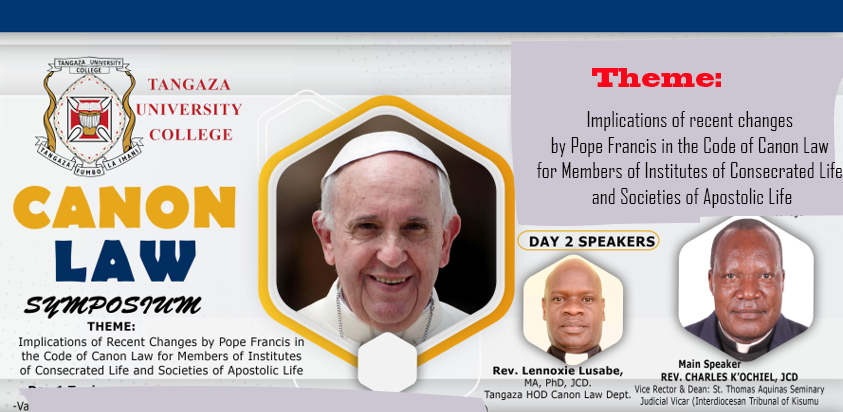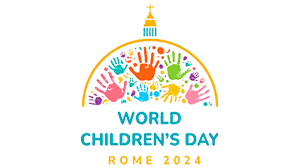KENYA: Cleric Calls for Boldness in Reporting Sexual Abuses and Offenses

Sr. Jecinter Antoinette Okoth, FSSA
A Kenyan Catholic priest has called on Christians to have confidence and speak out whenever there are cases of sexual abuse and offenses so victims can be helped.
In his message during a two-day Canon-Law symposium at Tangaza University College (TUC) aimed to enlighten members of institutes of Consecrated life and societies of Apostolic life to understand the modifications in the Code of Canon Law, Fr. Charles Oloo K’Ochiel, Vice Rector of St. Thomas Aquinas Major Seminary, Nairobi and a Canonist in his observation noted that “Many cases of child sexual abuse go unreported with those living in highly rural areas being affected most.”
He added, “Despite the established policies and norms that protect minors, there still remain challenges on implementation either due to culture of secrecy that inhibit disclosure or poor monitoring and evaluation framework.
According to Fr. K’Ochiel, “Our communities need to invest more on mental health services as a means to assist the affected and children be educated on the importance of opening up and reporting cases of abuse to relevant authorities.”
Addressing Religious persons, clergy, seminarians and all people of good will who attended the Friday, February 18, symposium that was conducted both on-site and virtually, the cleric who doubles as the dean of students at St. Thomas Aquinas Seminary Stressed on the need of collaboration in the fight of the vice of abuse.
“It is a task that calls for concerted effort of each individual as well as joint approach, prayers for the guidance of the Holy Spirit and, finally, due application of the relevant procedures and norms for the administration of the desired justice with charity,” he said.
Speaking on the topic; sexual offences against minors and vulnerable adults in the light of vos estis lux mundi (You are the light of the world) Fr. K’Ochiel disclosed that there has been an increase in cases of sexual violence against children including; “Sexual assault, sexual exploitation, sexual grooming, commercial sexual exploitation, paedophilia and incest.
He added that “child sexual abuse often occurs alongside other possibly confounding variables, such as poor family environment and physical abuse, and in most cases the “fundamental damage inflicted by child sexual abuse is due to the child’s developing capacities for trust, intimacy, agency and sexuality, and that many of the mental health problems of adult life associated with histories of child sexual abuse are second-order effects.”
He further highlighted during the symposium themed: “Implications of recent changes by Pope Francis in the Code of Canon Law for Members of Institutes of Consecrated Life and Societies of Apostolic Life,” that perpetrators of abuse “may target anyone, regardless of age, gender, and ethnicity or any other factor,” leading to “sexual abuse against vulnerable adults.”
“Some people are more likely to be targeted than others, simply because perpetrators consider them to be particularly vulnerable. Just as perpetrators on child abuse capitalise on their age and immaturity, some adults are considered ‘at risk’ of abuse,” Fr. K’Ochiel said adding that “They may be unable or less likely to report abuse, while some may not even realise that they are being abused.”
“It is important to underscore that careful study of the provisions and the new changes on Book VI on Sanctions gives us a clear picture of the level of concern about this crisis (sexual abuse) and how much the Church has given her attention not only to combat the crimes, but also provide room towards healing of the victims, besides administration of justice,” he said.
He appreciated the Kenya Conference of Catholic Bishops (KCCB) which has developed a ‘Policy and procedures’ document to guide the local Churches.”
The two-day symposium was convened by the department of Canon Law, School of Theology in Tangaza University College, a constituent of the Catholic University of Eastern Africa (CUEA) with the intention to enlighten members of institutes of Consecrated life and societies of Apostolic life to understand the modifications in the Code of Canon Law.


